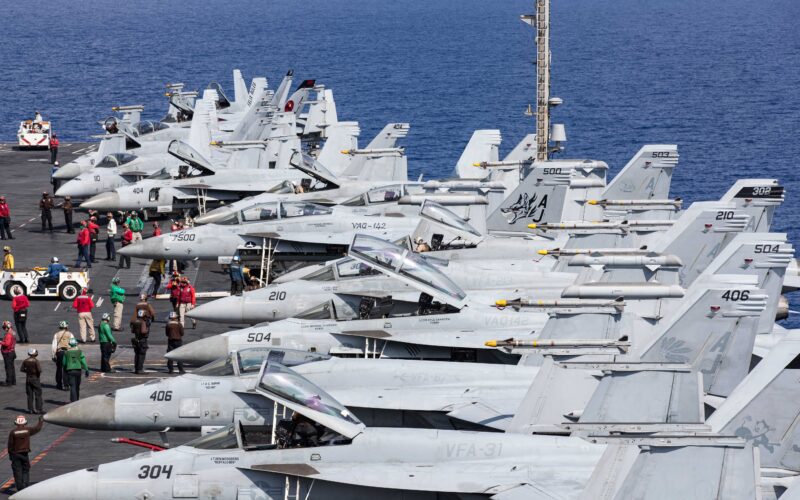The United States has taken swift and decisive action to significantly bolster its military presence in the Middle East in response to the recent Hamas offensive against Israel, which began on October 7, 2023.
These measures, which rely mainly on the deployment of additional US air power, aim to provide support to its ally, Israel, by deterring any potential regional adversaries from taking advantage of the situation. However, concerns arose about the potential impact of this increased deployment on ongoing efforts to assist Ukraine in its defensive war against Russia.
US aircraft deny airspace to Israel’s adversaries
The day after the initial offensive, the US Department of Defense announced that the USS Gerald R. Ford nuclear aircraft carrier and its accompanying strike group would be rerouted from the French port of Marseille to the Eastern Mediterranean to provide assistance and support to Israel.
The USS Gerald R. Ford, the world’s largest aircraft carrier, has the capability to carry more than 75 aircraft, including four squadrons of Boeing F/A-18 Super Hornet fighters.
On October 14, 2023, a second carrier strike group centered around the USS Dwight D. Eisenhower nuclear aircraft carrier was also deployed to the Eastern Mediterranean.
The USS Dwight D. Eisenhower houses over 60 aircraft, including four squadrons of Super Hornets in its carrier air wing.
The US Air Force has also increased its presence in the region by augmenting fighter aircraft squadrons.
The US Central Command (CENTCOM), responsible for the Middle East and Central Asia, reported the arrival of A-10 Thunderbolt II close air support aircraft assigned to the 354th Expeditionary Fighter Squadron and F-15E Strike Eagle dual-role fighters operated by the 494th Expeditionary Fighter Squadron.
On October 13, 2023, during a press briefing, US Secretary of Defense, Lloyd J. Austin III, emphasized the need to deter any efforts to escalate the conflict:
“For any country, for any group or anyone thinking about trying to take advantage of this atrocity to widen the conflict or spill more blood, we have just one word: Don’t.”
Balancing US military support between Israel and Ukraine
However, concerns have been raised, including by Ukrainian President Volodymyr Zelenskyy, regarding the potential impact of these deployments on the ongoing support for Ukraine in its defensive war against Russia.
Some of the ammunition to be sent to Israel, including 155-millimeter artillery shells and JDAM kits that transform unguided bombs into precision munitions, are regularly included in aid packages sent to Ukraine.
The Department of Defense addressed these concerns, assuring that the United States could continue to provide support to both Israel and Ukraine without weakening its level of assistance.
“We are working urgently to get Israel what it needs to defend itself, including munitions and Iron Dome interceptors. And we will do so even as we continue to support the people of Ukraine as they fight against Russian aggression,” Austin stated, emphasizing that “the United States can walk and chew gum at the same time.”

